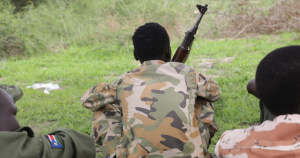Emma Bonino, Rome-Brussels, 21 March 2019
Statement by Emma Bonino, founder of No Peace Without Justice:
“As early as 1993, the Radical Party and No Peace Without Justice, which I founded that year to further the establishment of international tribunals, initiated a campaign directed at European Union governments to act firmly against the regime then in power in Belgrade, collecting over 200,000 signatures on an appeal which sought the indictment of President Slobodan Milosevic. Just two years later, the world was horrified by the genocide in Srebrenica. Thousands of Bosnian Muslim men and boys were slaughtered, their friends and family helpless to protect them; the international community apparently standing by, powerless to stop it. Among those who orchestrated that campaign of hate were Radko Mladic, who was sentenced to life imprisonment in 2017, and Radovan Karadzic, whose initial sentence of 40 years was increased to life yesterday by the International Criminal Tribunal for the former Yugoslavia, in what is likely to be one of its last pronouncements.
“But this is not a day on which we should remember the defendant; this is a day on which we should remember his victims. Those who died during those hot 11 days in July 1995; those who were raped and tortured; those who were deported; and those who suffered for decades afterwards, wondering what had happened to their loved ones, trying to find justice and trying to rebuild their lives from the ashes. As New Zealand Prime Minister Jacinda Ardern recently had tragic cause to say, “I implore you, speak the names of those who were lost rather than the name of the man who took them… He is a criminal… But he will, when I speak, be nameless.” We can learn much from those words: the architects of the genocide in Srebrenica may not have sought notoriety the same way as the person responsible for the massacre in Christchurch, but they did seek a world cleansed of “undesirables” in which they, and those like them, would rule supreme.
“We must not let them reign supreme in our memories when we think of Srebrenica. Rather than see their faces, we should see the thousands of names inscribed on the memory wall at the memorial-cemetery complex in Srebrenica and see the faces of those who suffered and died at their hands. Today, when the value of these victims was honoured by raising the sentence from 40 years to life, we should pay tribute to their memories and try to learn from what was done to them. As Bill Clinton said, “I hope the very mention of the name “Srebrenica” will remind every child in the world that pride in our own religious and ethnic heritage does not require or permit us to dehumanize or kill those who are different. I hope and pray that Srebrenica will be for all the world a sober reminder of our common humanity.”
“The only thing that this particular defendant, and other criminals like him, should take from the ICTY’s swan song is this: the wheels of justice may grind slow, but they get there in the end. He evaded justice for more than 10 years, which was longer than some of his victims walked the earth; it took a further 11 years to reach this final say on his sentence. He was not, however, able to escape justice; and neither will others like him who flaunt the law and create new generations of victims and sorrow.
“International justice may currently be at one of its low points, with political attacks against it gaining force, including from the United States and its stunning announcement of retaliation against International Criminal Court staff and officials last Friday. But the memory of the law is long and international justice will swing to full force again, with steadfast support such as that shown by European Union member States and other members of the international community in response to last Friday’s actions. Then justice can be done and history will stand in support of the victims of horrendous crimes, as it is doing so today by the side of the thousands of victims of the Srebrenica genocide”.
For more information, please contact: Alison Smith (Director of International Criminal Justice Program) on asmith@npwj.org or Nicola Giovannini (Press & Public Affairs Coordinator) on ngiovannini@npwj.org




